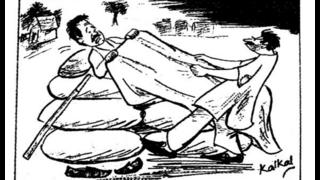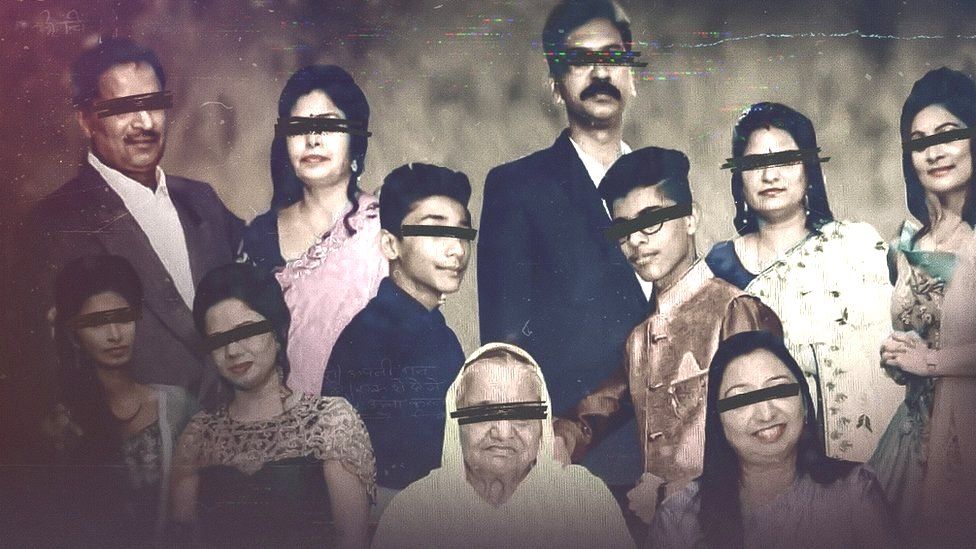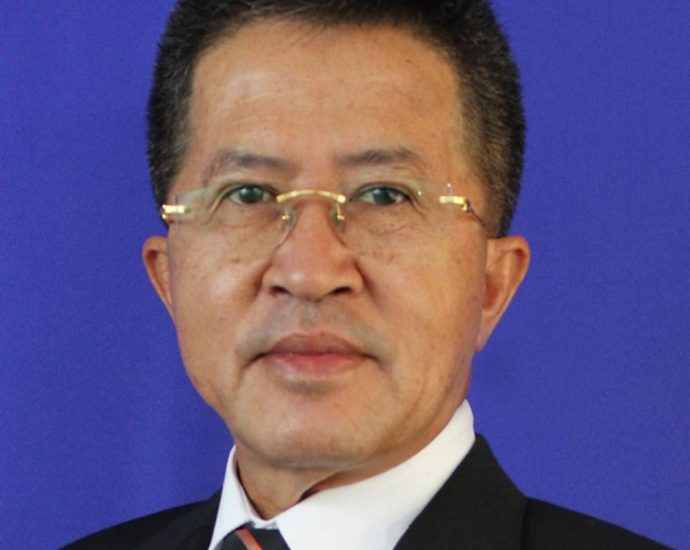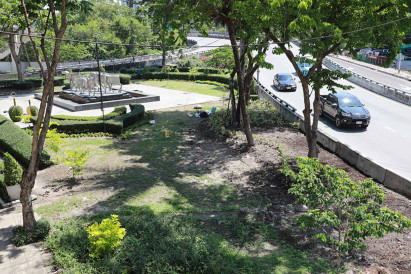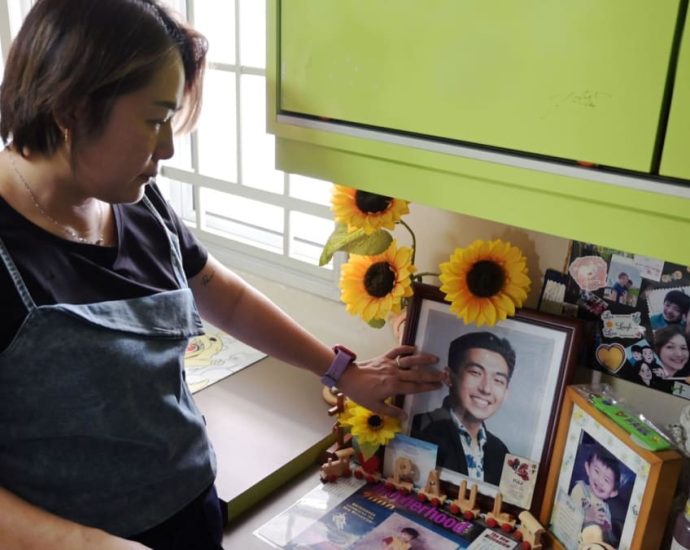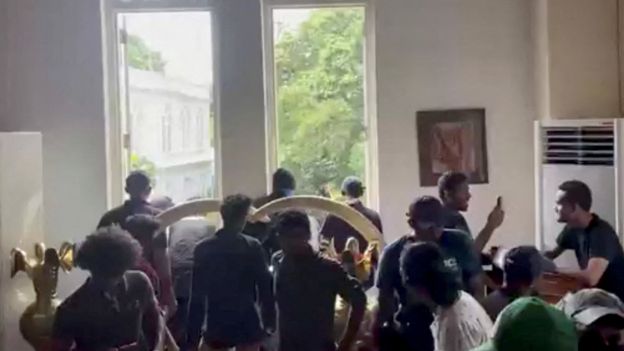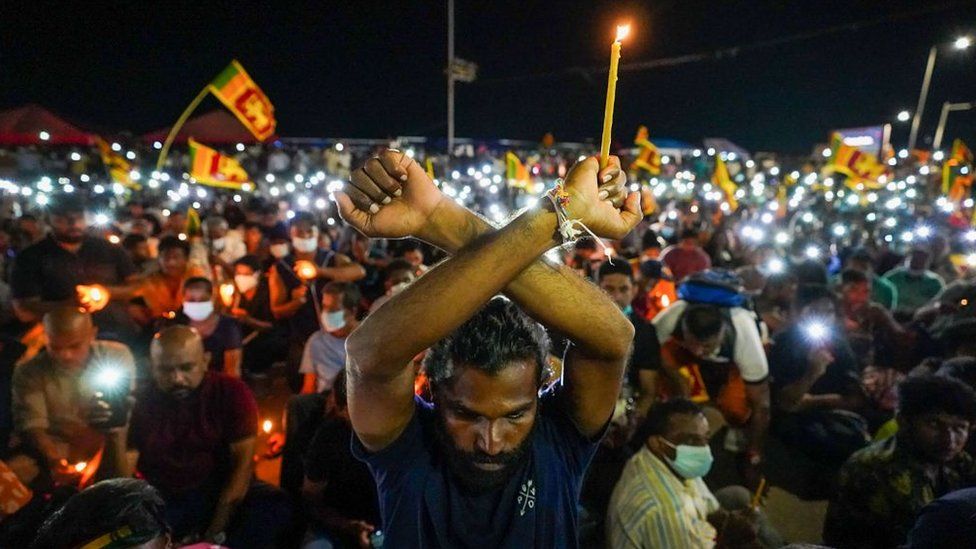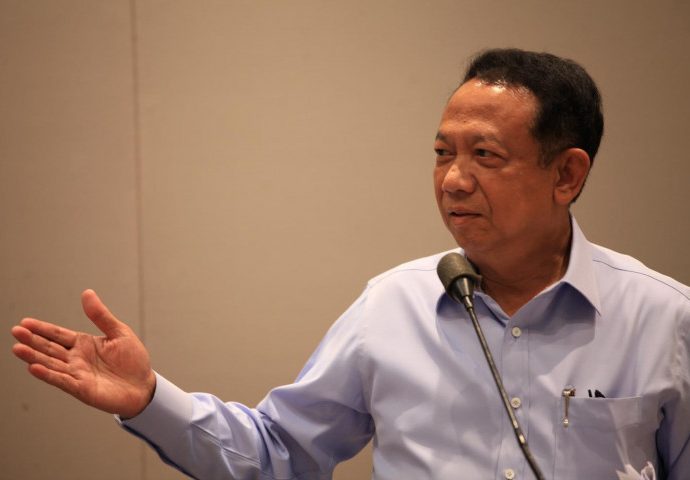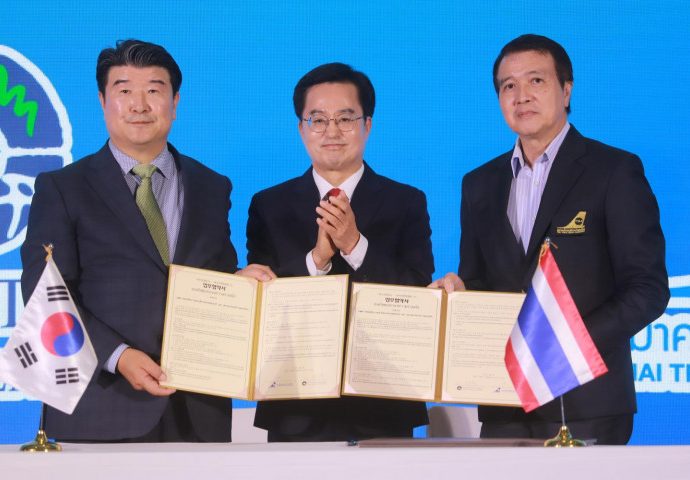After losing her breasts and putting on 16kg, she started a fitness studio to help breast cancer survivors

Fortunately, Aly had been zealous about breast cancer screening and her cancer was detected at Stage 1. It was a small 0.5cm lump in her right breast, and Aly was guardedly optimistic.
“At the start, I was all positive self-talk. I said to myself, ‘I’m a fitness professional, I can do this. I’m going to show the world that I’m a warrior,” she said.
“But the actual journey hit me like a tonne of bricks. It was so much harder than I’d ever envisioned,” she admitted.
INFECTIONS FROM THE BREAST RECONSTRUCTION IMPLANTS
It began as a simple lumpectomy to remove the tumour. However, her doctors could not find clear margins and suggested a mastectomy to remove her entire right breast. Because of Aly’s family history of breast cancer, she decided to remove both breasts, even the one that did not have a tumour.
She then underwent reconstruction using breast implants before proceeding to do chemotherapy.
Little did she expect to get infections from the breast implants.
“That was far worse than my chemotherapy. They had to take out the implant on my right, wash it up and put it back in. Then, my left implant also got infected. So they did three surgeries to wash the implants in total.
“My doctor said I was probably the unluckiest cancer patient in terms of reconstruction that they’d ever had,” she said.
Delhi’s earliest crimes revealed by 1800s police records
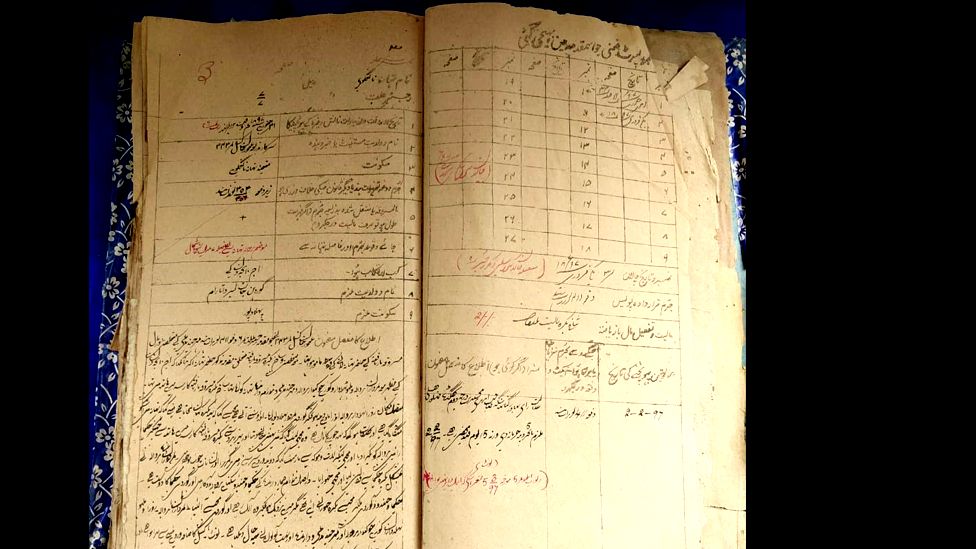 Rajinder Kalkar
Rajinder KalkarOn a cold January night in 1876, two weary travellers knocked at Mohammed Khan’s house in Delhi’s Sabzi Mandi – a thriving labyrinth of narrow alleys in India’s capital – and asked if they could stay the night.
Khan graciously decided to let the guests sleep in his room. But the next morning, he found that the men had disappeared. Also missing, was Khan’s bedroll which he had given the men to rest. Khan had been robbed, he realised, in a way like no other.
Nearly 150 years on, the story of Khan’s ordeal now features in a list of the earliest crimes reported in Delhi, records for which were uploaded on the city police’s website last month.
The “antique FIRs” provide details into some 29 other similar cases that were registered at the city’s five main police stations – Sabzi Mandi, Mehrauli, Kotwali, Sadar Bazar and Nangloi – between 1861 to the early 1900s. In Khan’s case, the police caught the men and sent them to three months in jail on charges of theft.
Originally filed in the tenacious Urdu shikastah script – which also has words in Arabic and Persian – the FIRs were translated and complied by a team led by Assistant Commissioner of Delhi Police Rajendra Singh Kalkal, he also illustrated each of the cases himself.
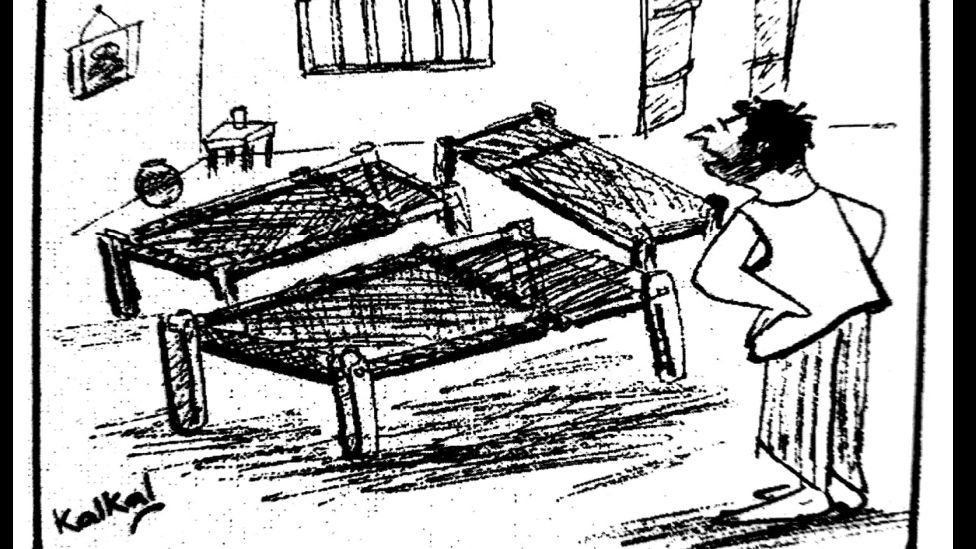
Mr Kalkal told the BBC the records “spoke to him” because of the fascinating insights they offered into the lives of people in a city which has survived waves of conquests and change. “The files are a window to the past as well as the present,” he says.
Most of the complaints involve petty crimes of theft – of stolen oranges, bedsheets and ice cream – and carry a comical lightness to them. There’s a gang of men who ambushed a shepherd, slapped him and took away his 110 goats; a man who nearly stole a bedsheet but got caught “at a distance of 40 steps”; and the sad case of Darshan, the guardian of gunny bags, who gets beaten black and blue by thugs before they snatch his quilt and a shoe – just one of the pair – and run away.
For anyone familiar with India’s past, this might seem odd given how the 1860s was a particularly grim period in Delhi’s history. The Mughal rule had just ended after the British suppressed the revolt of 1857, often referred to as India’s first war of independence. The city – once an idyll of pleasure gardens, Sufi devotion, arts and Mughal regalia – now laid in ferment, sacked and looted.
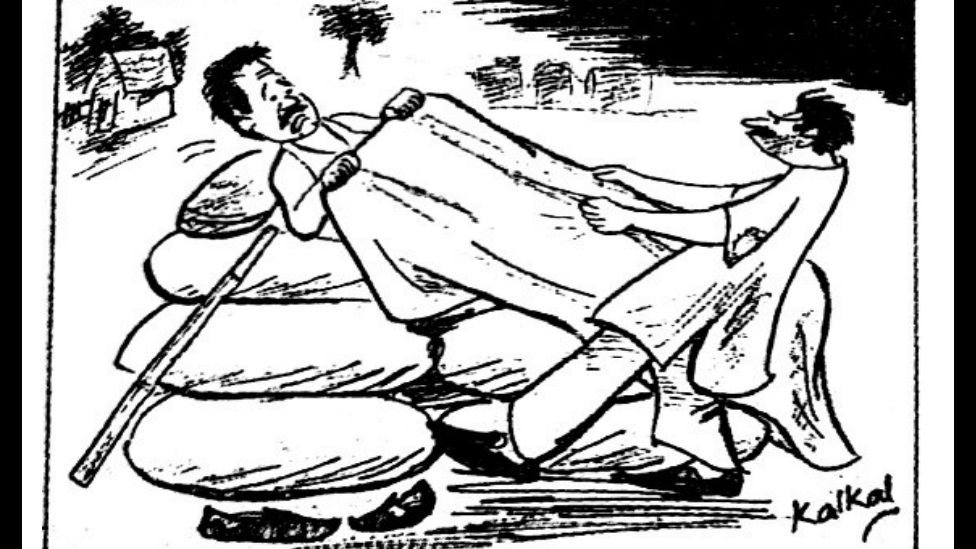
Artist and historian Mahmood Farooqi says that one possible reason why no serious crimes occurred at that time was that people had become deeply intimidated by the British, who continued to run a an iron-fisted rule in the years after the revolt.
Men, women and children were brutally massacred. Many were forced to leave Delhi forever and move to the surrounding countryside, where they lived the remaining years in abject poverty. And a few of those, who managed to remain within the city walls, had to live under the constant threat of getting shot or being hanged to the gallows. “This was a time of carnage. People were terrorised and brutalised so much that they bore its trauma for years.”
Mr Farooqui adds that unlike other cities such as Kolkata (formerly Calcutta) where modern policing had already taken shape, Delhi continued to run on a unique, “a purana, or old” system of policing, laid under the Mughal rule, which was hard to dismantle and replace completely. “So discrepancies or gaps in records are not entirely out of question.”
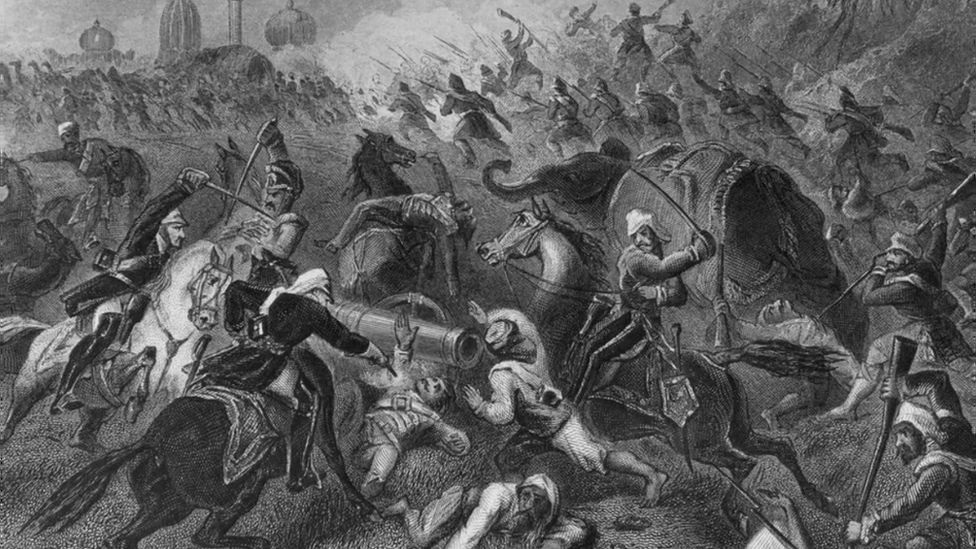
The records, which lie in the Delhi Police Museum, were discovered sometime last year. Mr Kalkal, who was in-charge of the research and preservation of the museum’s artefacts, said he found them while he was browsing through the musty old archives one fine day. “I saw hundreds of FIRs lying in obscurity. When I read them I realised how its format has remained unchanged even after 200 years.”
Mr Kalkal says he too was struck by the innocuous nature of the offences, a time when stealing objects like cigars, pyjamas and oranges was “the worst imaginable thing”.
But the fact that relatively benign crimes were being reported to the cops does not necessarily mean that a lot of heinous crime weren’t already happening – Mr Kalal suspects the first case of homicide would’ve surfaced as early as 1861 itself, when an organised form of policing was established by the British under the Indian Police Act.
“Finding murder cases was not the focus of our research but I am sure they are there, somewhere,” he says.
In many complaints, the outcome of the case is marked as “untraceable”, suggesting that the culprit was never caught. But in several other, such as Khan’s case, swift punishment appears to have been delivered with severity ranging from whippings, beating with canes to a few odd weeks or months of jail time.
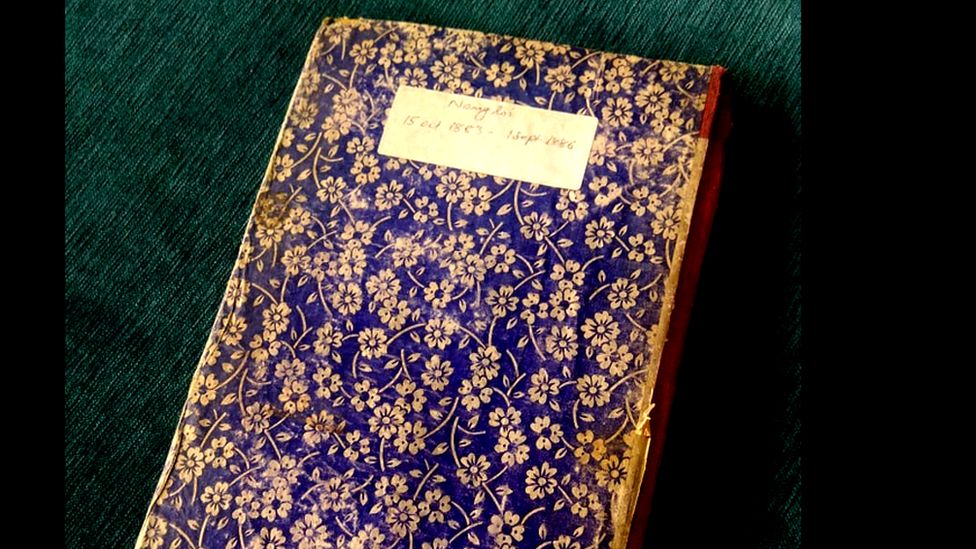
One such crime took place at the city’s most graceful grande dame, the 233-room Imperial Hotel, in 1897. A chef from the hotel was sent to the Sabzi Mandi police station with a “complaint letter in English” stating that a band of thieves, in an act of unimaginable travesty, had nicked a liquor bottle and a pack of cigars from one of the rooms. The hotel announced a handsome reward of 10 rupees for catching the men. But the case turned cold and could never be solved.
“Today, crimes have become so sophisticated that it takes months and years to solve them. But life was much simpler back then, you either cracked a case or didn’t,” Mr Kalkal says.
Mr Kalkal’s team couldn’t be happier about the compilation but he says the initial process of translation was hardly delightful. The difficulty of reading the Urdu shikasta script wore him down on multiple occasions and for cracking that, his team had to seek the skill and persistence of Urdu and Persian scholars and maulvis brought in from every corner of the city.
“But we always knew the effort was worth it,” he says.
He was particularly charmed by one passage which described a police officer’s annoyance after he was forced to park his “vehicle” – his beloved horse – out in the heat while investigating a theft case.
“The details really make you wonder how far we’ve come, isn’t it?”
Related Topics
Move Forward Party faces uncertain fate

The parliamentary vote to select the new prime minister is less than a week away and it is anybody’s guess who will emerge as the country’s next leader.
Under the charter, a candidate must receive at least 376 votes from among 500 MPs and 250 senators to become prime minister.
As things currently stand, the eight-party coalition led by the Move Forward Party (MFP) controls 312 House seats, so it needs the support of at least 64 votes from either senators or MPs outside the bloc to secure MFP leader Pita Limjaroenrat’s bid to become prime minister.
When the joint sitting of MPs and senators convenes this Thursday for the crucial vote, political observers don’t think the new prime minister will emerge in one round of voting. The coalition formation is likely to shift if Mr Pita cannot muster enough support to meet the 376-vote threshold after the second round.
In that event, observers present two possible scenarios: Pheu Thai, the second largest party in the eight-party bloc, may nominate Srettha Thavisin and a joint sitting of parliament may vote for Mr Srettha to be the next prime minister.
Or, Pheu Thai will take the lead in the coalition and bring in new partners or form a new one without the MFP.
In the latter scenario, either Mr Srettha or Gen Prawit Wongsuwon, leader of the Palang Pracharath Party (PPRP), may be voted in as prime minister, while the MFP may be forced into opposition.
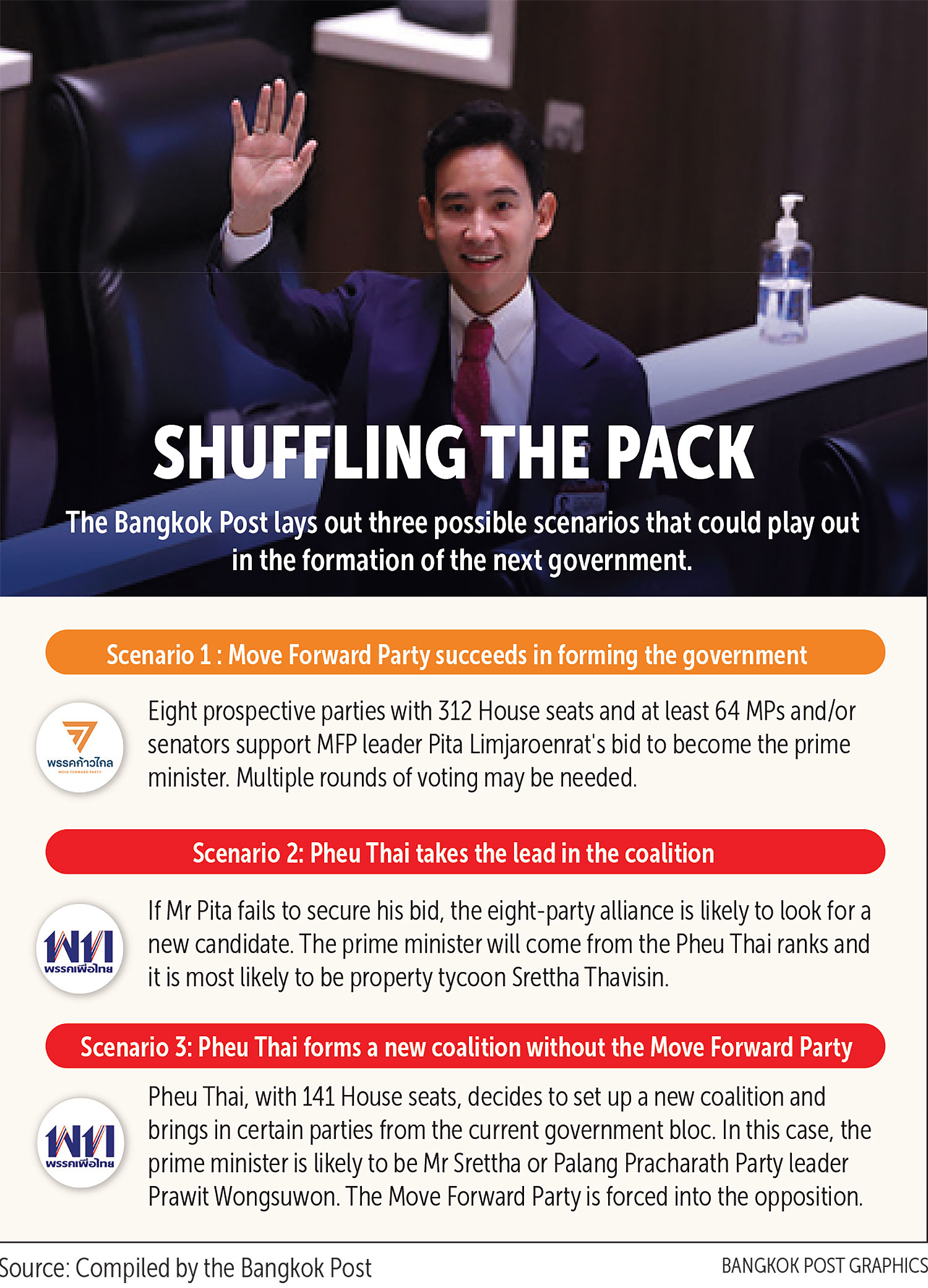
Alliance to move forward
The selection of the House speaker and two deputies is a strong sign the formation of the eight-party coalition is on track, said MFP deputy party leader and list-MP Natthawut Buaprathum.
He said the bloc is also counting on MPs from outside the bloc and senators who indicate they will respect the majority’s wishes and so vote for Mr Pita to be prime minister.
Mr Natthawut said the number of senators expected to vote for Mr Pita is believed to exceed the number the MFP-led alliance needs and he expects the prime minister will be known in just one round of voting.
He said the party will prep Mr Pita for questions to be raised when he presents his vision speech before the joint sitting and if the party can address concerns, some may have a change of heart.
Many senators are against the MFP’s policies to amend the lese majeste law and may vote against Mr Pita or cast a vote of abstention.
“We believe several senators have decided to vote for him but keep the decision to themselves. The number of those in favour of Mr Pita is growing,” he said.
According to the MFP deputy party leader, at this point there is no situation in which the MFP would have to join the opposition and it will take a while before any legal cases against Mr Pita are finalised.
The MFP leader faces complaints questioning his eligibility over a shareholding in iTV Plc. The constitution bars individuals with media shareholdings from running for office.
Mr Natthawut also ruled out the possibility of some party MPs switching sides and dismissed speculation the party could be at a disadvantage because the House speaker is now in the hands of the Prachachat Party, known to be close to Pheu Thai.
He said the party’s fight for the House speaker post has nothing to do with the prime minister vote and the issue is settled now that Wan Muhamad Noor Matha, of the Prachachat Party, has assumed the role.
Regardless of who the House speaker is, the coalition is obliged to follow the memorandum of understanding on coalition formation which it signed, he said.
He said it is time for the country to have a government which can handle pressing matters including investors’ confidence and the budget bill for the 2024 fiscal year.
Asked if the MFP is ready to vote for a prime minister candidate from Pheu Thai, he said he believed every party has selected the best it can offer but it is too soon to consider them.
“We must support the MFP’s candidate first. But if we really have to pick someone else, we will consider candidates from within the alliance,” he said.

Natthawut: Support for Pita ‘growing’
Two rounds ‘should be enough’
There is no limit as to how many times a prime minister vote can be held.
Mr Wan indicated that if a candidate fails to win a first round of voting, further rounds will be held until a candidate reaches the 376-vote threshold. A second round of voting is tentatively scheduled on July 19.
However, there are fears among the Pheu Thai Party that the deadlock can trigger the opposing bloc to nominate a challenger to Mr Pita in a bid to form a minority government.
According to a source in Pheu Thai, although the constitution does not put a limit on how many times parliament will meet to select the prime minister, there is no point in still nominating Mr Pita after two rounds.
There would be no problem if the Senate was not involved in the selection process, and without its support the eight-party alliance still needs MPs from outside the bloc, with Bhumjaithai currently on its radar, said the source.
But Bhumjaithai, which has 71 House seats, is against amending the lese majeste law and the party MPs abstained when the House voted to select the first deputy speaker candidate from the MFP.
The Chartthaipattana and Democrat parties may also be brought on board, but the alliance will have to wait and see how the Democrat leadership race turns out, according to the source.
“But above all, it should be agreed how many rounds of voting should be enough. If it drags on, the other bloc may nominate a challenger. And if they do, they may succeed,” said the source.
It is unlikely that Bhumjaithai will give Mr Pita votes without getting anything in return. In fact, party is expected to drive hard bargain, said the source.
If Mr Pita’s bid fails and Pheu Thai steps in to lead the coalition, the party will nominate Mr Srettha in parliament, the source said, ruling out the possibility of “an outsider” prime minister.
In case parliament fails to select a new premier from the candidate lists supplied by the parties, Section 272 allows half of the 750 MPs and senators to initiate a motion to suspend the rule requiring that PM candidates come from party lists.
Such a motion requires the support of two-thirds of all the lawmakers, or 500, to suspend the rule. A nominated outsider would also need at least 376 votes to become prime minister.
The source admitted that although the House speaker selection was quick and smooth, the prime minister vote could face hiccups. “There are concerns about renegade MPs,” the source said.
PM will emerge ‘from Pheu Thai’
Witthaya Kaewparadai, deputy leader of the United Thai Nation Part (UTN), said the MFP has put itself in a difficult position and if it cannot get itself out, Pheu Thai will take the lead in coalition formation.
He was referring to the MFP’s stance that it would not do business with those who supported Prime Minister Prayut Chan-o-cha in the 2019 general election.
The MFP and its partners will have to work things out with parties they brand “dictatorship” parties, he said, adding they know what the rules are, but still choose to put themselves on the spot.
However, Pheu Thai is considered to be in a better position than the MFP to clinch the PM post because it is opposed to revising the lese majeste law, said the UTN deputy leader.
“Whether or not there will be more parties added to the coalition depends on whether they reverse their stance [on not working with pro-military parties],” he said.
Asked about the UTN’s stance, he said the party made its stance clear when it put up MP for Phitsanulok, Padipat Suntiphada, for the first deputy House speaker post, challenging the MFP.
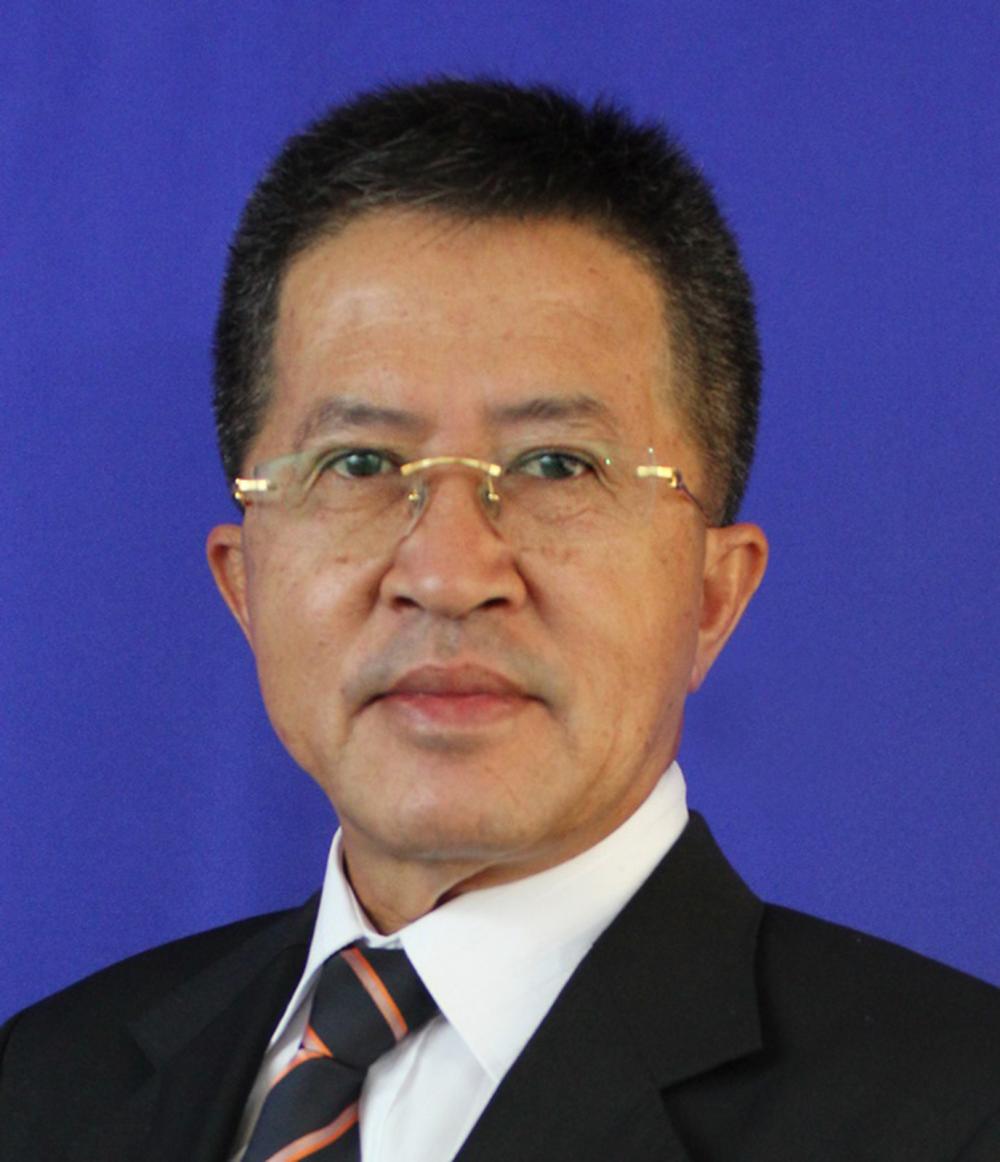
Witthaya: MFP in a difficult position
Sen Somchai Sawaengkarn said the MFP’s election victory caught the Pheu Thai Party off guard and posed a threat to the party which was banking on the two-ballot system to deliver it a landslide win.
In his view, Pheu Thai will negotiate to be part of the next coalition government and if an alternative is possible, the party may drop the MFP and join hands with Bhumjaithai or the PPRP.
“Pheu Thai’s goal is to be in the government and it’s willing to drop the prime minister post. It may even give the post to the PPRP but it’s not easy due to pressure from MFP supporters,” he said.
According to the senator, Pheu Thai will not nominate Paetongtarn “Ung Ing” Shinawatra, daughter of deposed prime minister Thaksin, this time to hold off critics.
Mr Somchai rejected speculation about the current government bloc forming a minority government because it would be short-lived and it would backfire when the next elections are held.
“A minority government is unnecessary and it’s not the way things should be. The parties that opt for this won’t survive the next polls,” Mr Somchai added.

Somchai: Pheu Thai won’t nominate Ung Ing
Move Forward’s green spaces bill passes first reading

The Bangkok Metropolitan Council has passed the first reading of a Move Forward Party-backed bill increasing green space in the capital.
Putthipat Thanyathammanon, a councillor for Yannawa district from the MFP, said on Saturday he proposed a motion to a council meeting on Thursday that the bill be put to a vote. It passed with 31 votes in favour against two abstentions.
The aim is to enforce a 50% open space requirement on new construction projects for growing trees or plants as trees and greenery will help absorb dust, improve air quality and lower city temperature, he said.
In the motion, all households must devote 50% of their available outdoor space for planting tress, so owners of a house with a 30m² outdoor area would be required reserve 15m² for planting trees and other approved greenery.
He said the motion will be applied to new and renovated building and housing projects. The measure excludes existing and old buildings.
He said the requirement will help to tackle the lack of green space in Bangkok, although the Bangkok Metropolitan Administration also has a budget to grow trees on road islands or using the pillars of skytrain projects for vertical gardens if necessary.
The World Health Organisation recommends a minimum of 9m² of green space per individual but in Bangkok, the area is only about 7m².
After passing the first reading, the council will have a 17-member committee deliberate the motion before submitting it to the council for second and third readings. “This bill is a proactive measure to help meet our basic right to health,” said Mr Putthipat.
What a mother who lost her son to suicide has to say to other parents

“When I saw the article, I took a few deep breaths to read all the reports because I really feel that it is very sad, and it’s very alarming that we lose lives this way. And of course, it does bring me back to my son’s passing,” said Alicia.
PAUL’S STORY
An extrovert who always wanted to help others, Paul had ambitions to be a social worker and studied to be a nurse.
But the stress of the course meant he changed his plans and moved into studying drama at the Nanyang Academy of Fine Arts (NAFA), where he graduated with a diploma.
The eldest of three children, Paul was always attentive to his sister and brother.
“He will bring them out for meals, like sibling bonding. As a kor kor (older brother), he was very caring towards his two siblings,” explained Alicia.
He was especially close to his younger sister, who has mild autism. From primary school, he started taking a more “hands-on” approach towards caring for her.
In 2019, Paul started staying away from home, straining his relationship with his mother.
He started having bowel issues and had asked his mother for sleeping supplements. She did not think much of it and thought he had sleep issues because he was up playing games.
During the first suicide attempt, he reached out to a friend, who contacted the police. His family was notified, and they started counselling.
In 2020, when COVID-19 hit and the two-month “circuit breaker” – where residents could only leave home for essential activities – was implemented, Paul struggled with staying at home. Tensions rose, and when the circuit breaker was over, the young man again attempted to take his own life.
He was admitted to the Institute of Mental Health and started working with a counsellor. Again, things started to look up.
“After his second attempt, I saw a change in his character, I saw a change in his attitude towards life. And I thought that he knew what he was doing, and what he shouldn’t do,” recalled Alicia.
Sri Lanka: The fate of a protest that toppled a president
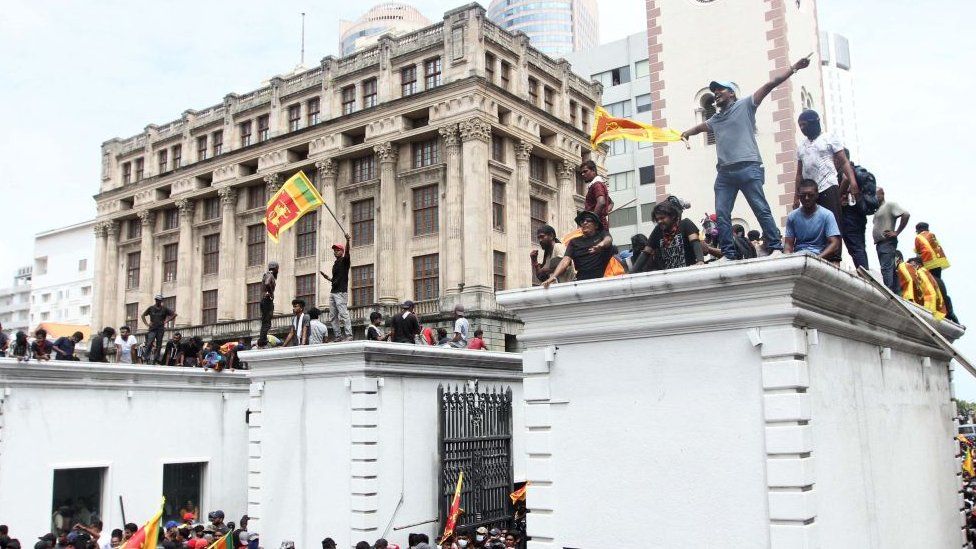 Getty Images
Getty ImagesUdeni Kaluthantri, a 54-year-old port worker, became an overnight sensation last year for reasons that had nothing to do with his job.
Days after protesters stormed the presidential palace in the Sri Lankan capital Colombo, a video surfaced of Mr Kaluthantri lounging on a bed draped with the presidential flag.
Pictures of young men jumping into the pool inside the palace and bouncing on the presidential four-poster bed had already gone around the world. Mr Kaluthantri’s video joined all of the other imagery as poetic proof of how millions of Sri Lankans were fed up of what they regarded as inept and corrupt governance under President Gotabaya Rajapaksa.
Soon after, Mr Rajapaksa fled the country, resigning days later. It was hailed as a massive win for an unprecedented people’s movement but one year later, Sri Lanka looks quite different.
The people’s struggle
In early 2022, inflation in Sri Lanka skyrocketed as foreign reserves emptied and the country ran short of fuel, food and medicine. Residents experienced up to 13-hour power cuts in what was the worst economic crisis the country had faced since independence.
Many held then president Mr Rajapaksa and his family responsible. While his disastrous economic policies led to the shortfall in foreign currency, the Rajapaksa family was also accused of corruption and siphoning public money. But the Rajapaksas deny any wrongdoing and place blame elsewhere for the crisis: the sharp drop in tourism revenue because of the pandemic and the high cost of fuel after Russia invaded Ukraine.
I was in Colombo last year as crowds gathered at Galle Face Green, a popular beach-facing public space in Colombo. The demonstrations continued day and night, the crowds swelling in the evenings with families, students, priests, nuns, clerics and monks. Driven by the rallying cry “Gota go home”, the protests engulfed the country, uniting Sri Lanka’s three major communities – Sinhalese, Tamils and Muslims – for the first time.
This video can not be played
To play this video you need to enable JavaScript in your browser.
Weeks later, they culminated in extraordinary scenes where protesters stormed the presidential palace, with the intention of forcing Mr Rajapaksa out of power. Mr Kaluthantri was among them. Mr Rajapaksa was not at the palace when the protesters broke in – so they made themselves at home, and took away all sorts of “souvenirs”, from bed sheets to books.
“I took the presidential flags away because I thought Mr Rajapaksa wouldn’t be able to act as president without those official symbols,” Mr Kaluthantri said. Sri Lanka’s presidential flags are unique to each president, and the design changes every time a new leader assumes office.
Five days later, Mr Rajapaksa fled the country and sent his resignation from Singapore. This was seen as a victory for the “aragalaya” or “people’s struggle” as the movement was called.
The decline of the Rajapaksa family would have been unthinkable a few months before. The politically powerful family was popular for crushing the Tamil Tiger separatists in May 2009 and ending the country’s 25-year civil war.
But now, a year on, it is the protesters who are in trouble, while the Rajapaksas and several other politicians singled out by public anger are back in the country – and in positions of power.
What happened?
The crackdown
After Mr Rajapaksa fled the country, veteran opposition politician, Ranil Wickremesinghe was elected as the new president in a parliamentary vote. He was backed by Mr Rajapaksa’s party, which had a landslide majority.
Hours after Mr Wickremesinghe was elected, the military was deployed to clear the crowds at Galle Face. Dozens of soldiers swooped on the site, dismantling tents and other belongings of the demonstrators.
Mr Kaluthantri himself surrendered to police and spent 21 days in custody on charges of desecrating the presidential flag. The case against him continues. “I have no regrets. I did it for the country and people,” says Mr Kaluthanthri, who was suspended from his job for two months.
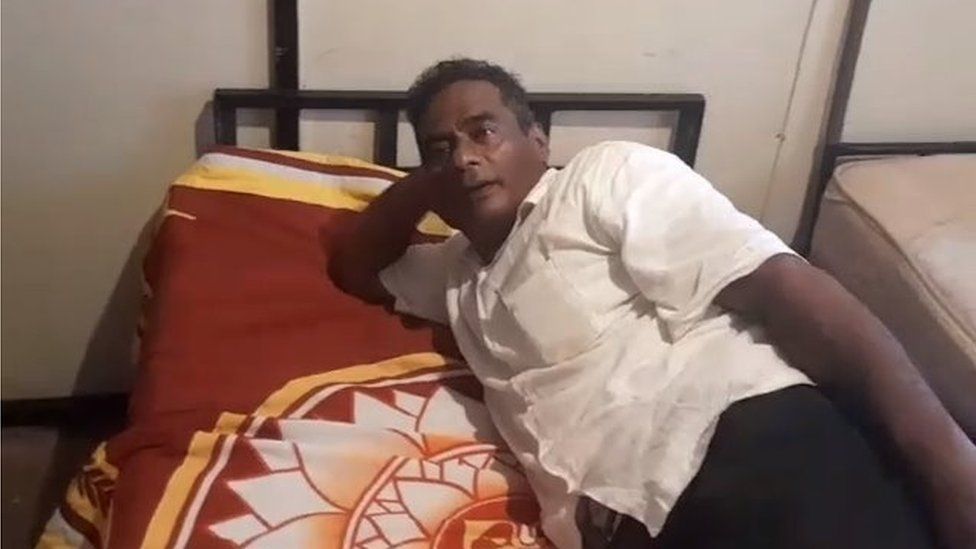
His only regret: “We managed to force Gotabaya Rajapaksa to resign, [but] we were not able to introduce a new political culture.”
With Mr Rajapaksa gone and the new government taking steps to ease the acute shortage of fuel and other essentials, many protesters resumed normal life. The authorities then used force – deploying all the legal and punitive powers at their disposal – to clear the last, most committed of the demonstrators from the protest sites.
Weeks later, Mr Rajapaksa and his brother Basil, who had also fled the country, returned.
The former president is now living in a high-end government bungalow, while many of the members in his cabinet have been reinstated.
The silenced voices
One of those who faced the full wrath of the state was Wasantha Mudalige, a left-wing activist and former convenor of the Inter-University Students Union. He was at the forefront of the protest movement.
Mr Mudalige was arrested under the draconian Prevention of Terrorism Act (PTA) and spent more than five months in prison.
“I could have spent more time in prison if not for the courts. The government cannot suppress protests without solving people’s issues.” Mr Mudalige says.
A court in Colombo dismissed the terror charges against Mr Mudalige in February and ordered his release. The judge said the authorities had misused the act.
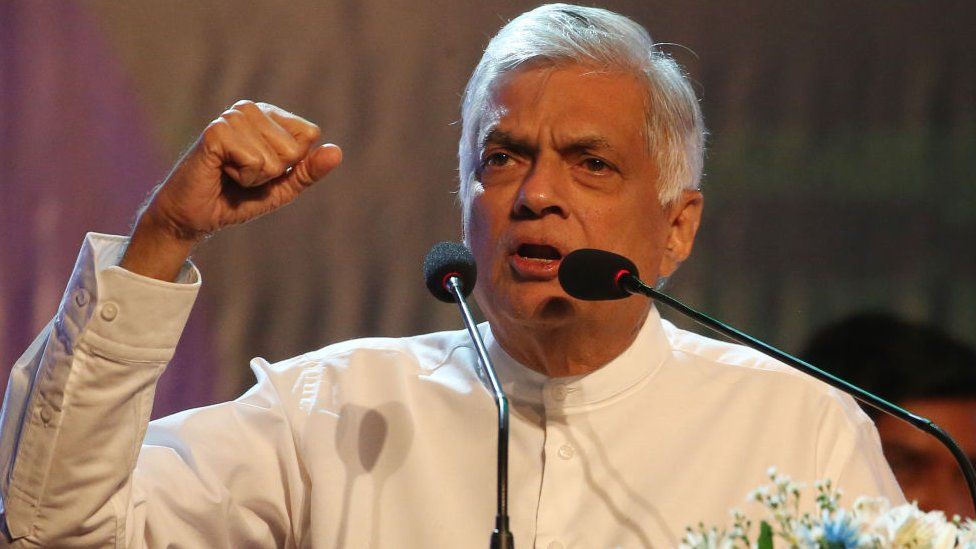
Many other protesters have also been charged under various laws, and some have been sentenced to prison. Yet many of the protest leaders look back at the movement with pride.
Swasthika Arulingam, a human rights lawyer and a prominent activist, says it was a historic, unorganised movement that attracted people from all walks of life.
“But we have not achieved the long term goals of Aragalaya – like… no change in the political system, no accountability on corruption, and those who are responsible for stealing people’s money are still in power,” she says.
Although the protests have gone silent for now, some protesters like Samadhi Brahmananayake argue that the agitation showed what people’s power can do.
“The protest gave us hope and confidence. We have realised what we can achieve collectively. Several young people now want to become politicians. We have to work towards political change,” says Ms Brahmananayake.
Mr Wickremesinghe’s government secured a $2.9bn dollar bailout from the International Monetary Fund in March. This has enabled Colombo to reach out to other international lenders to kickstart the economy, and find enough dollars to supply fuel, food and cooking gas.
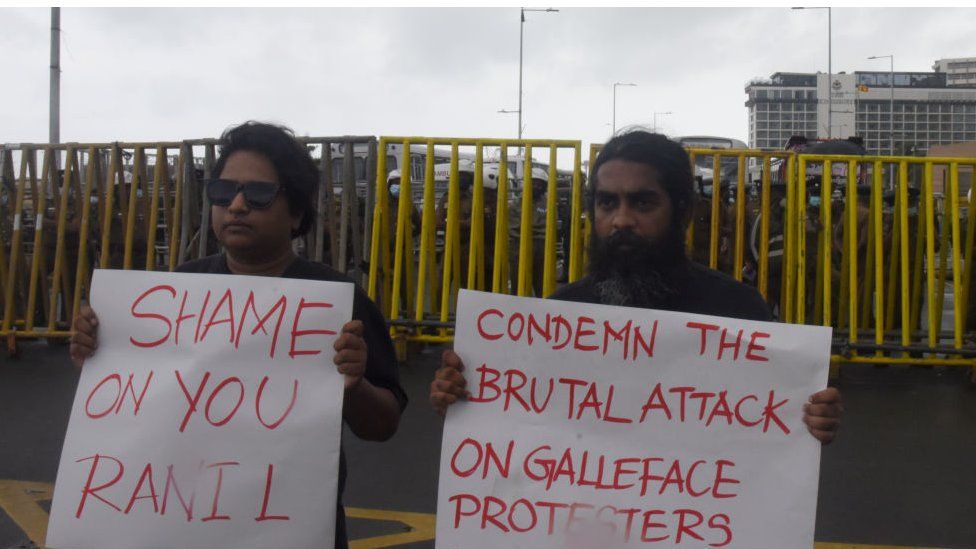
With tourism and remittances from Sri Lankan workers abroad picking up again, the country is clawing its way back but still has a mountain to climb.
Sri Lanka’s total debt, both domestic and foreign, stands around $80 billion and it will be a challenge to repay the loans. Colombo is negotiating with creditors to agree a debt restructuring programme by September.
The government is calling for a 30% write-off in investors’ capital in dollar-denominated bonds. But opposition leaders say this could have an impact on the pension funds of Sri Lankan workers.
The proposals have also sparked concerns among many Sri Lankans and some warn against taking the current calm for granted.
“The country continues to be in a state of economic crisis,” says Ms Arulingam. “In addition to the spiralling cost of living, now there are worries over retirement savings. If people’s living conditions do not improve, they may take to the streets again.”
You might also be interested in:
This video can not be played
To play this video you need to enable JavaScript in your browser.
-
-
9 July 2022
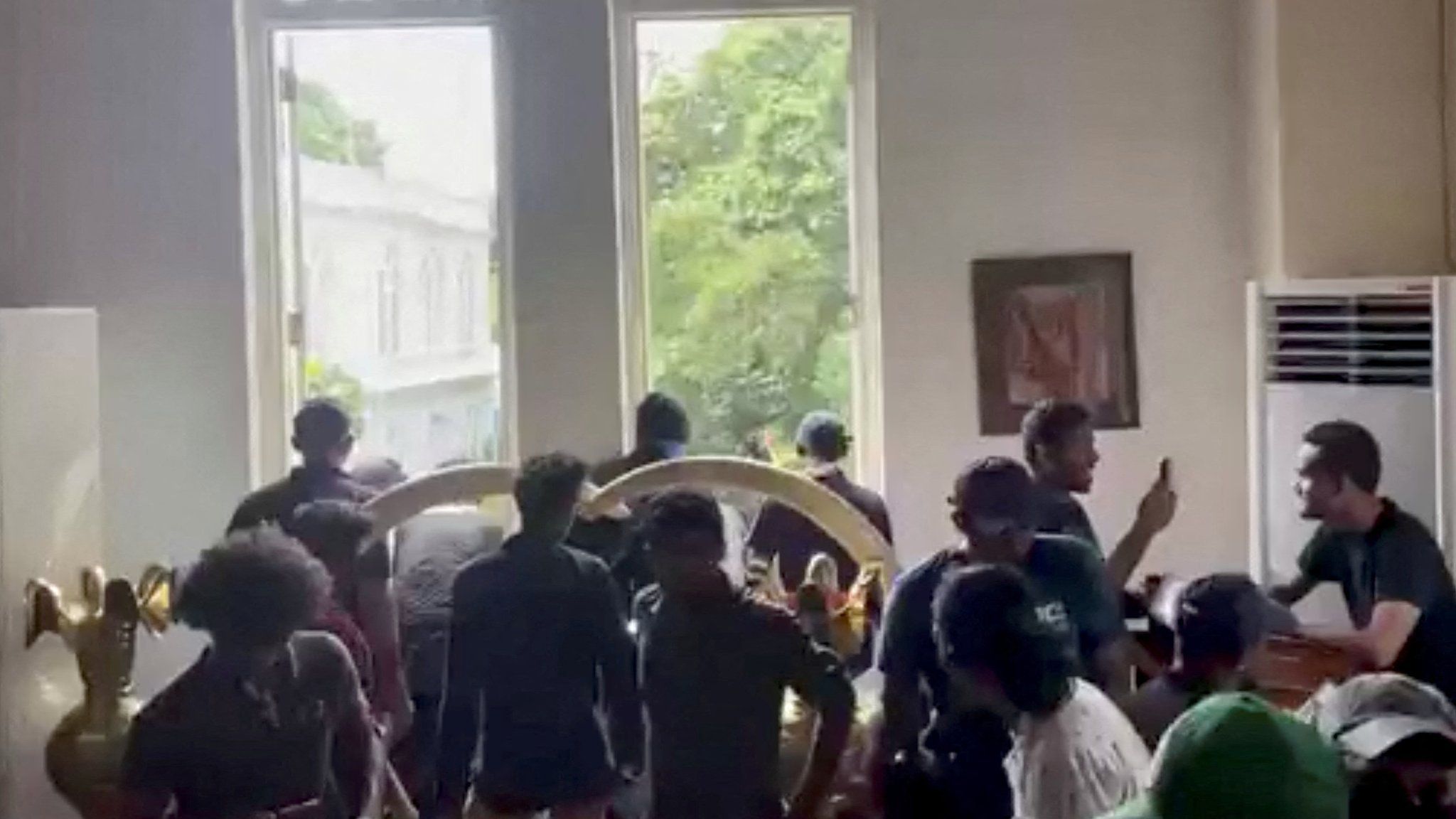
-
Commentary: Why are women expected to dress a certain way once they hit 50?
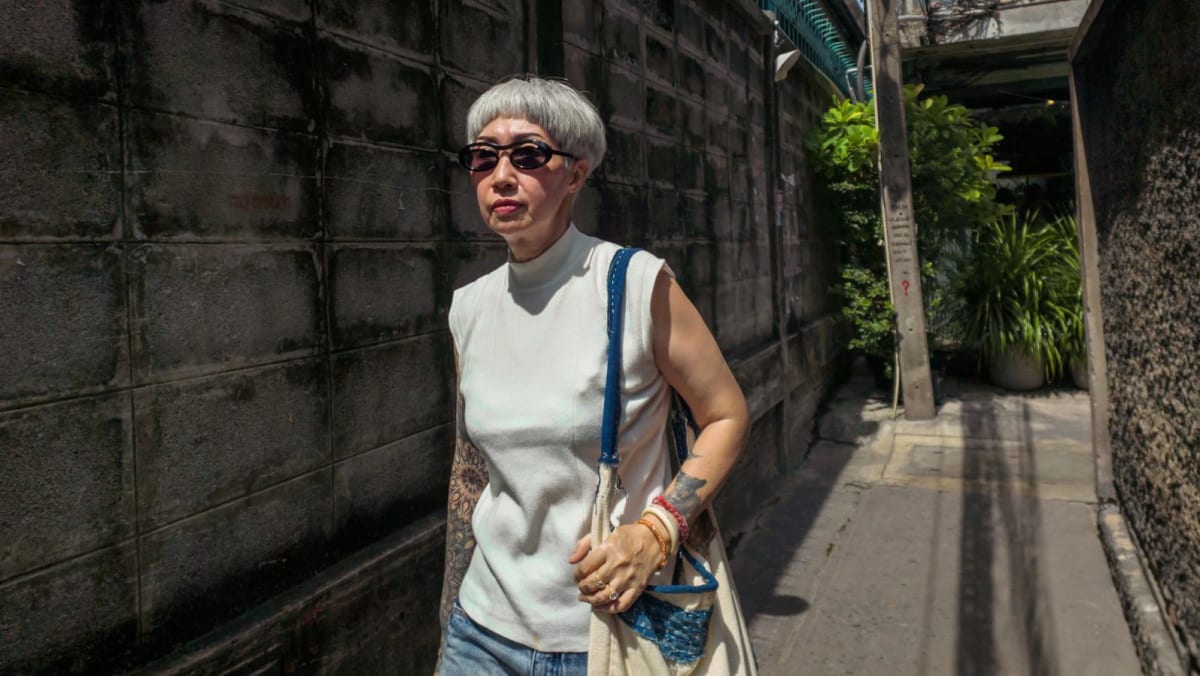
Yet she has her own personal, non-conformist style. She favours hats, chunky accessories, funky sneakers and vintage pieces. She has dyed her hair in all kinds of colours, from brown, blue and purple to platinum blonde.
As for me, I’ve decided that rather than follow fashion trends, I’m just going to dress according to my lifestyle. T-shirts and tank tops paired with shorts or tights for long walks, yoga, high-intensity interval training (HIIT) and staying home. Polo shirts and skorts for golf and running errands. Easy, breezy dresses for beach vacations, lunches with girlfriends and dinner parties.
No matter what anyone says, I still believe elasticated-waist jeggings are great for moving about. I will keep my shoulder-length hair the way it is – not because it makes me look younger, but because it’s more low-maintenance than a short crop.
And when those six ugly, gigantic bras break down, I’ll just get six more.
Tracy Lee is a freelance writer based in Singapore who writes about food, travel, fashion and beauty.
Tarit contests malfeasance suit
Ex-DSI chief says he was wrongly indicted for opposing 2010 red-shirt crackdown
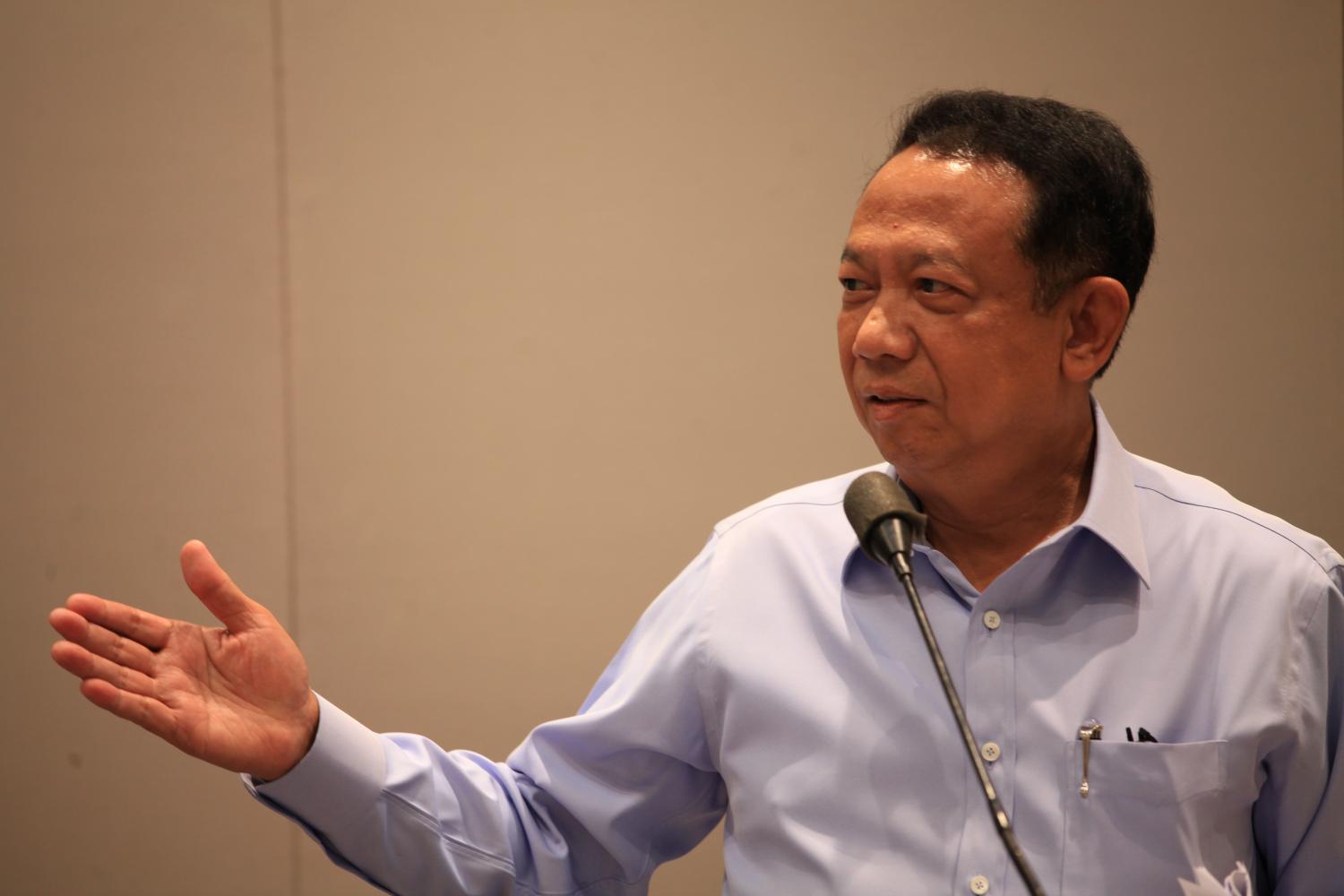
Former Department of Special Investigation (DSI) chief Tarit Pengdit has petitioned the Supreme Court to ask the Constitutional Court to rule on the constitutionality of Section 157 and Section 200 of the Criminal Code, under which he has been indicted for malfeasance.
The move comes ahead of the Supreme Court’s ruling tomorrow in a case connected with the political violence of 2010.
The malfeasance suit was brought against him by former prime minister Abhisit Vejjajiva and former deputy prime minister Suthep Thaugsuban who were in charge of the now-defunct Centre for Resolution of the Emergency Situation when handling anti-government protests in 2010.
The DSI under Mr Tarit brought murder charges against Mr Abhisit and Mr Suthep for ordering the crackdown on red-shirt protesters. After the two were later acquitted by the Supreme Court, they filed a malfeasance suit against Mr Tarit and others for unfairly pursuing the murder charges.
The Criminal Court dismissed the malfeasance case, but the Appeal Court then reversed the lower court’s ruling, sentencing Mr Tarit to two years in prison. The Supreme Court will hand down its ruling tomorrow after having postponed the ruling hearing eight times.
Appearing before the press yesterday, Mr Tarit said he is prepared to go to jail if he is found guilty, but pointed out that a malfeasance case like this one will discourage state officials from doing their jobs.
He said he petitioned the Supreme Court last week and urged the court to provide justice to the victims of the political violence as well as the state officials like himself who were doing their jobs.
The former DSI chief also urged the new government to set up an independent committee to look into the 2010 crackdown on red-shirt protesters.
He claimed that before the 2014 coup, he was summonsed to a military camp and told not to pursue the case or he would face a transfer if a coup was staged. He was transferred within 24 hours of the coup.
Ramet Rattanachaweng, acting Democrat spokesman, yesterday slammed Mr Tarit for twisting facts and undermining the justice system.
He said Mr Abhisit and Mr Suthep were already cleared of wrongdoing by the Supreme Court and the National Anti Corruption Commission (NACC).
He said Mr Tarit admitted to unlawfully pursuing the charges against Mr Abhisit and Mr Suthep.
“He should respect the legal process and fight the case in court. Don’t be embarrassed to face the truth or this matter will never come to an end,” he said.
S Korea’s Gyeonggi urges Thais to visit

The Thai Travel Agents Association (TTAA) and Gyeonggi Tourism Organisation (GTO) have signed a Memorandum of Understanding (MoU) to promote bilateral cooperation and initiatives on tourism.
Kim Dong Yeon, Gyeonggi governor, said Thailand had become the most likely destination for the “next” Korean Wave in Southeast Asia. With the expansion of airline routes, the province had sought to promote tourism between the countries.
He said the GTO realised the need to create awareness about the province among Thais, so organised the “Come to the real Korea, Gyeonggi” seminar on Friday in Bangkok to promote the region.
Gyeonggi is a province in the northwest of South Korea, surrounding the capital city of Seoul. It is the largest local autonomy area in South Korea and home to more than a quarter of the country’s population. Tourist highlights include the demilitarised zone (DMZ) in Paju City where both North and South Korean flags are flown at Bora Observatory Hall, he said.
The province is also popular for film shoots due its abundance of historical sites as well as Unesco World Heritage sites such as Hwaseong Fortress, constructed during the Joseon Dynasty and located in Suwon City, and the royal tombs of the Joseon Dynasty and Namhansanseong Fortress. The province is also a hub for semiconductor production and a home to world-renowned Korean businesses such as Samsung and Hyundai.
Govt eyes economic boost from health and wellness tourism

The government is promoting health tourism and related products and services in a new campaign to get overseas visitors to spend at least 18 million baht by this September.
The “Discover the New You!” campaign is backed by the Tourism Authority of Thailand (TAT) and more than 130 health and wellness business operators, including hotels, health resorts, spas, hospitals and clinics.
“The prime minister [Prayut Chan-o-cha] appreciates the cooperation from all sectors to promote health tourism and sustainable tourism,” government spokesman Anucha Burapachaisri told the media yesterday.
“The premier is also confident that this activity will draw the attention of tourists and add economic value,” he said.
The campaign is aligned with the Amazing Thailand Health and Wellness New Chapters New Experience project, which aims to sell products that appeal to tourists under the concept of “meaningful wellness”.
In addition, the TAT has invited business operators and social media influencers to join the campaign. But for now, related media networks will promote 15 health tourism routes.
The TAT said the aim is to capitalise on Thailand’s reputation for health and wellness products and stimulate the economy through tourist spending that the government is confident can top 18 million baht by September.
Those interested in the campaign can find out more information on the “discoverthenewyou.travel” website and the “@tat-wellness.th” official Line account.


